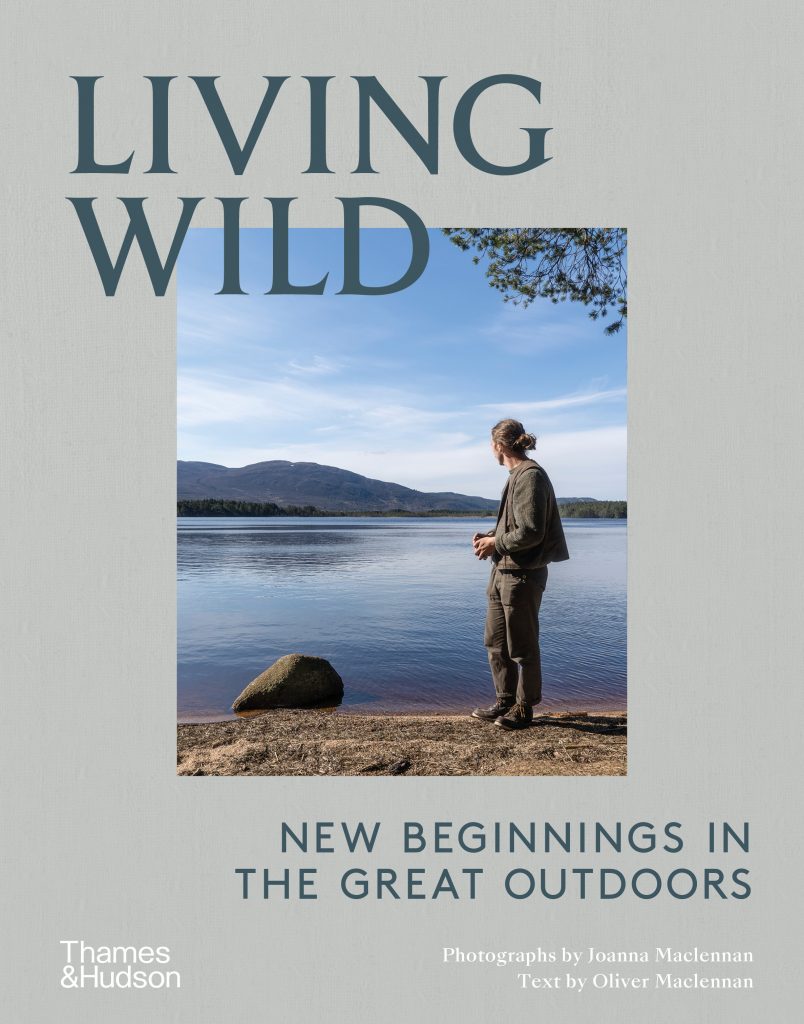
Modern life in the Western world often can feel like being in a sausage factory, with the wake, work, sleep, repeat pattern leaving many of us in a constant state of tedium. One of the remedies to this is to break free from the cultural norms and seek out a different life, one emptied of the trappings of modernities (or at least many of them) that can actually make us feel constrained.
Over the last few years writer Oliver Maclennan has been meeting an array of people who have done exactly this. Along with his photographer sister Joanna Maclennan, the pair have toured the globe meeting free spirits who’ve made decisions to tread the path less travelled, all resulting in their fantastic new book, Living Wild. From mountaintop dwellers in Switzerland to regenerative farmers in Germany, not to mention ranchers on the Great Plains of Wyoming, they’ve met a host of colourful characters who’ve chosen to live a more meaningful existence closer to nature.
We sat down with Oliver for a chat about his different experiences meeting these free spirits, what made many make such drastic life changes, the day-to-day obstacles they faced and whether ultimately it made them happy.
The MALESTROM: What initially drove you and Joanna to create Living Wild?
Oliver Mclennan: We’d done a book before called The Foraged Home. That was mainly interiors and design. A lot of that focussed on rural areas and people who had made big changes to their lives and lived more remotely. It was really interesting talking to them.
My sister and her husband live in France, they were in the book as well, that’s their lifestyle. They decided to build on a plot of land in rural Provence. I think my sister was definitely thinking along those lines of living more remotely and how to balance work, life and family. We wanted to look at that more than just how to make a beautiful looking home. Which was still part of the focus in Living Wild as well.
We wanted to dig a little deeper and find out why people were willing to take such a big risk. It’s madness some of the decisions people make. Those were the main reasons for doing the book.
TM: There’s a vast array of different lifestyles in the book, from living on a mountainside to a small shack in the woods. Tell us about some of those?
OM: What I love about the book is it’s so diverse, each story was really very different. The choices people had made, where they were living wild. A couple that come to mind are Steven and Amy who live in the Cairngorms. Related to covid, he was a postman, she worked in a coffee shop.
Covid hit and they’d bought a place a few years before outside of Newcastle. They had their hour where they were allowed out each day and found themselves in this industrial park and they said to each other what are we doing here? We’ve not been happy in our work, let’s do what we’ve always talked about, which is to sell the house and buy a camper van and go out into the wild. Covid was a big push for them to pursue their dreams. That was very inspiring. They’re making huge successes out there. They’ve found something that works really well for them.
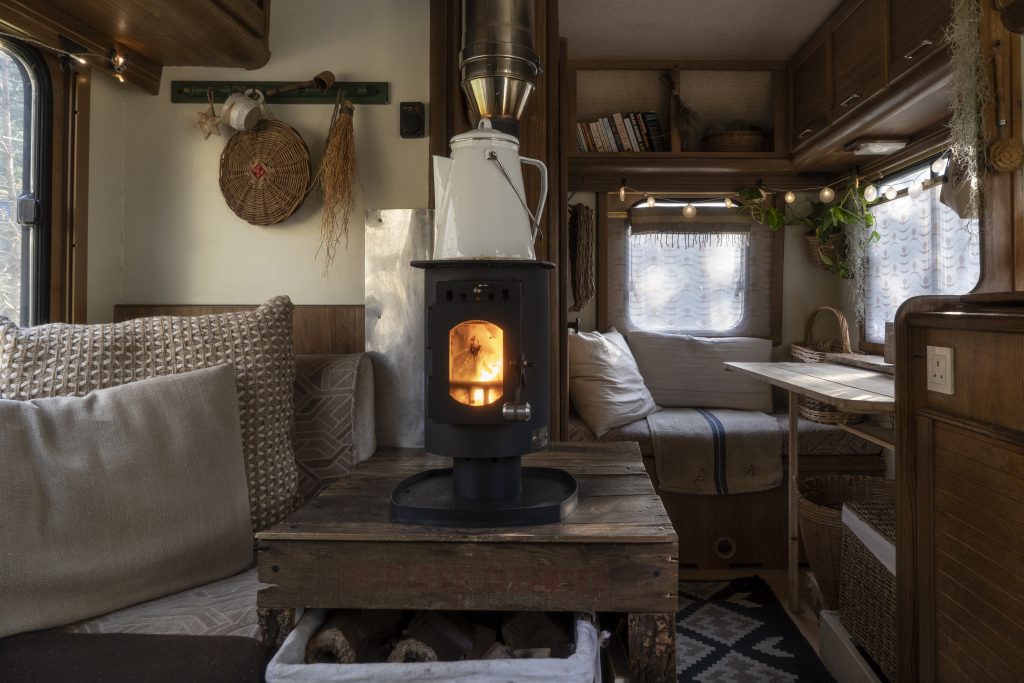
TM: Did you see that a lot? In terms of the trigger for change being general unhappiness in the lives people were living and the search for a simpler one?
OM: I would say slower perhaps, to be honest it’s not simpler, it’s more difficult! Many more problems are created by themselves. Problems they’re willing to solve and sacrifices they’re willing to make. So, I’m not sure simpler is the right word. Certainly some are pushing back a bit because they’re dissatisfied with the typical 9 to 5 and those expectations of getting that job and working in the office, then you get married and have children.
You follow all the patterns of getting a mortgage and the faster car that comes with the larger salary. There’s a lot of people pushing back against following that. But then some of them simply wanted to be out in nature, they just love being in the forest or living by the coast, whatever it is. It’s also for their children, having those things on their doorstep. So, lots of motivation, not entirely pushing back against capitalism.
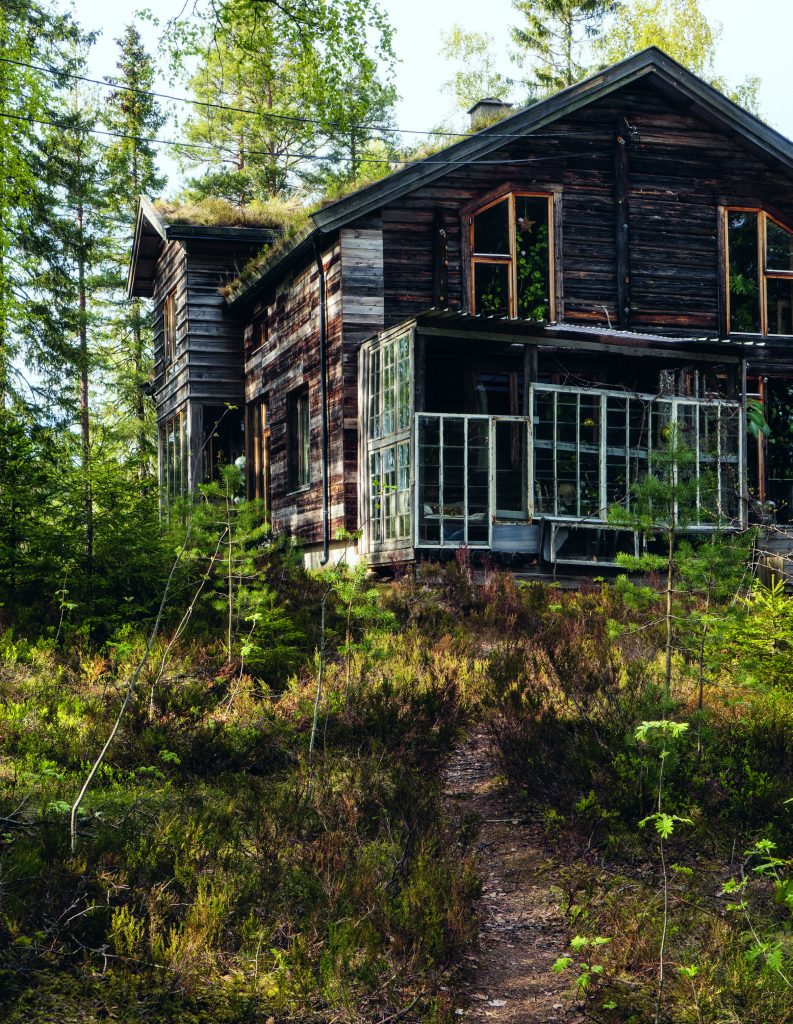
TM: I’m sure it’s difficult to pick a favourite from the places you visited, but do any stick out in particular?
OM: I love big landscapes and Wyoming was pretty incredible, that was in the summer. We’d timed it well for when all the wild flowers were coming out in mid-June to early July. They’d just had some snow, so it was just perfect when we arrived. They get a two to three month window and the rest of it is just snow. Their place is inside a huge high desert with mountains ringing the ranch they’d built out there on the land.
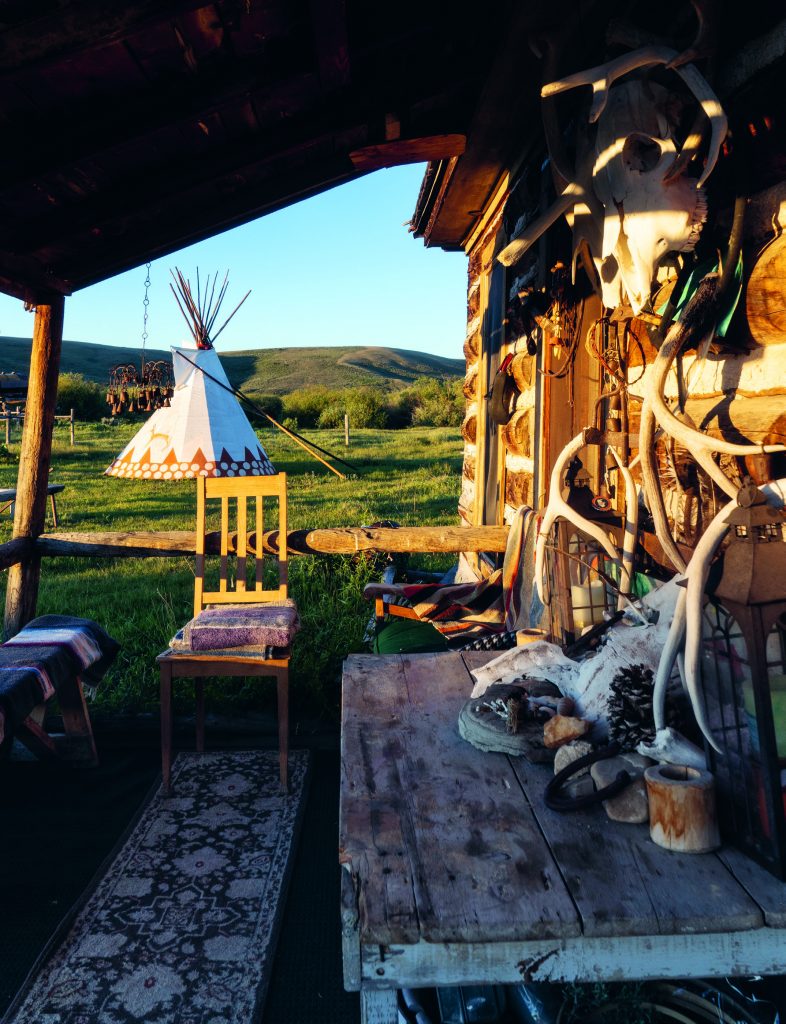
Then in Teton mountains near Jackson was Wendell Field, an artist living in a yurt. That was incredible. So those two certainly stood out. Finland was also very special. Sometimes we’d just arrive in the morning and meet the person – like the tiny house where we got down to Sussex, met Flo and spent the day with her and by late afternoon we’d done everything we needed to do. It was a great day, but it was short.
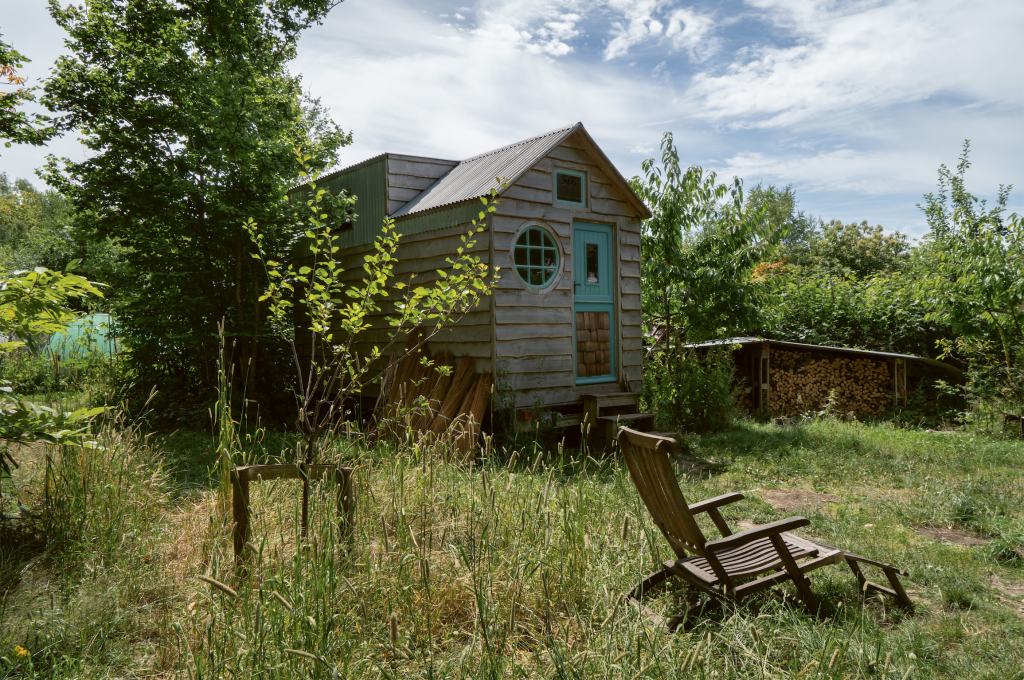
Whereas in Finland we spent three nights in the woods with this couple in their cabin. So we really got to spend time with them, which was very special. Plus being in the woods in winter surrounded by snow with two saunas, that was just great. We spent a whole day rebuilding the smoke sauna and getting the coals going. Very special.
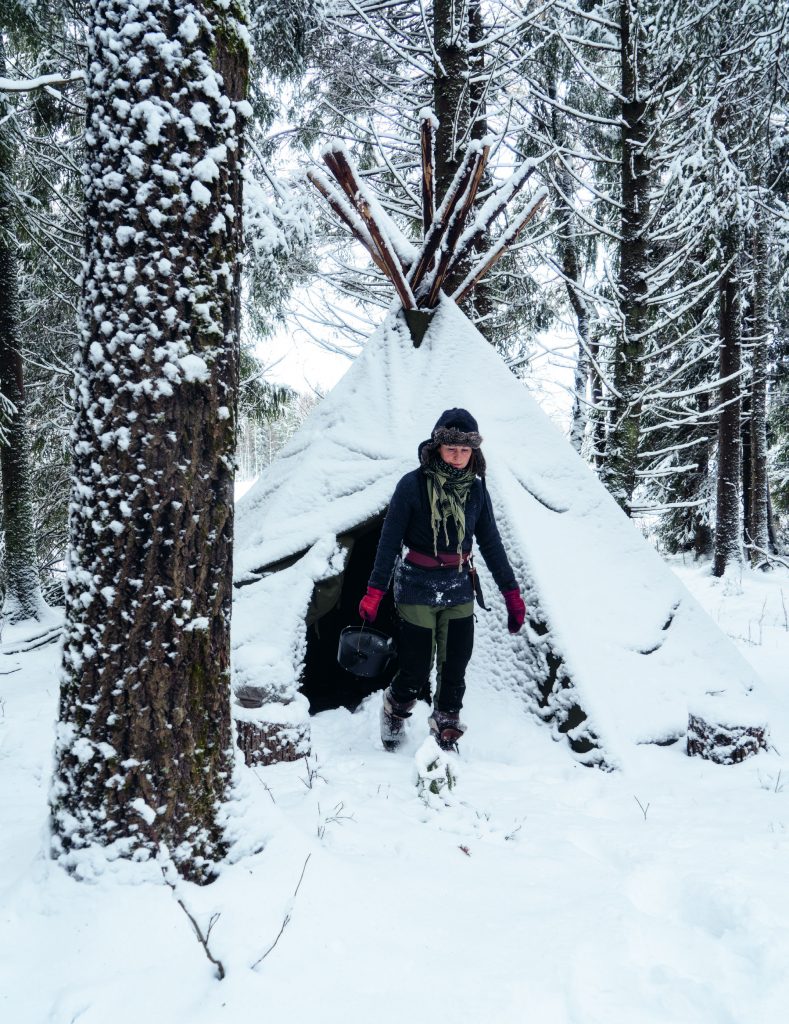
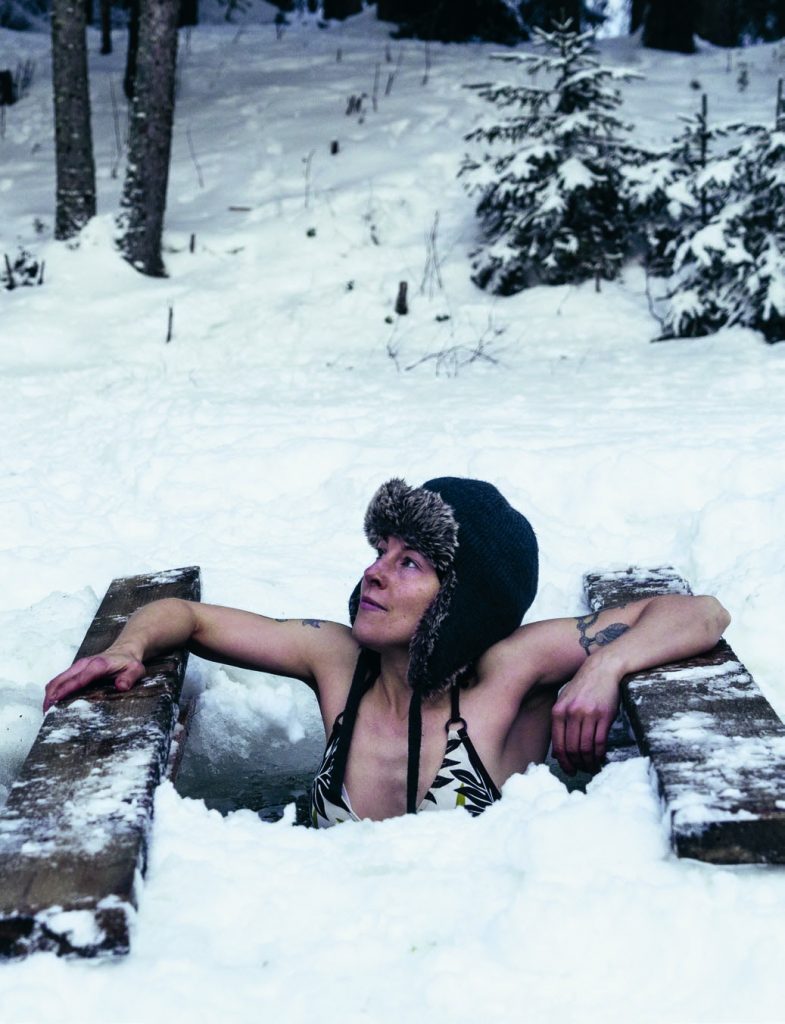
TM: Were there commonalities in some of the day-to-day issues and challenges your interviewees came up against?
OM: Certainly with living remotely. Some were off grid, some not. So they all had different challenges in those ways. I suppose what brought it altogether was balancing work and family if they had children. It’s the way of trying to live the life that they want, but that does involve a lot of sacrifice.
Using the internet for work was quite a vital part of making it feasible. It’s a balancing act. It’s also about a full immersion in the landscape and community, along with the natural environment – with its breadth and limitations.
TM: How might others go about taking the plunge and changing their own lives?
OM: I suppose if someone’s asking themselves are they willing to take that leap, if the answer is maybe, don’t do it. The answer needs to be an emphatic yes. This is something I really want to do. Which was the case for all of them. This was something they were all desperate to do.
That’s the most important thing I’d say, if you go into it half-arsed it’s going to fail and you’re not going to be happy. Cause you do have to give up a lot and it takes an enormous amount of hard work to build something. So you really, really have to want it.
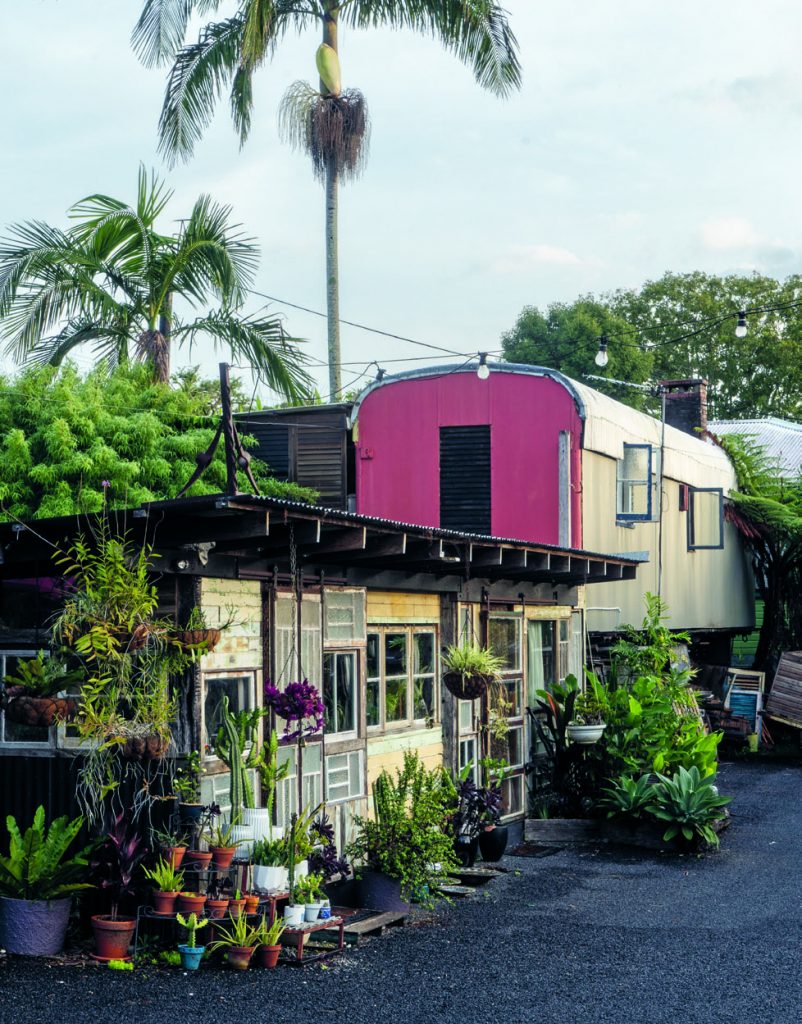
TM: And of course there’s an outlay in cost to set up off grid systems?
OM: Absolutely. It can be out of necessity as well. There was a couple in Portugal who just bought this plot of land that had nothing. So they had to create a borehole, they had to buy solar panels, partly because it was the cheapest option. In Herefordshire as well, it was off grid where they were, but it was just to expensive to join the grid. So it can be more expensive, but just depends on the situation.
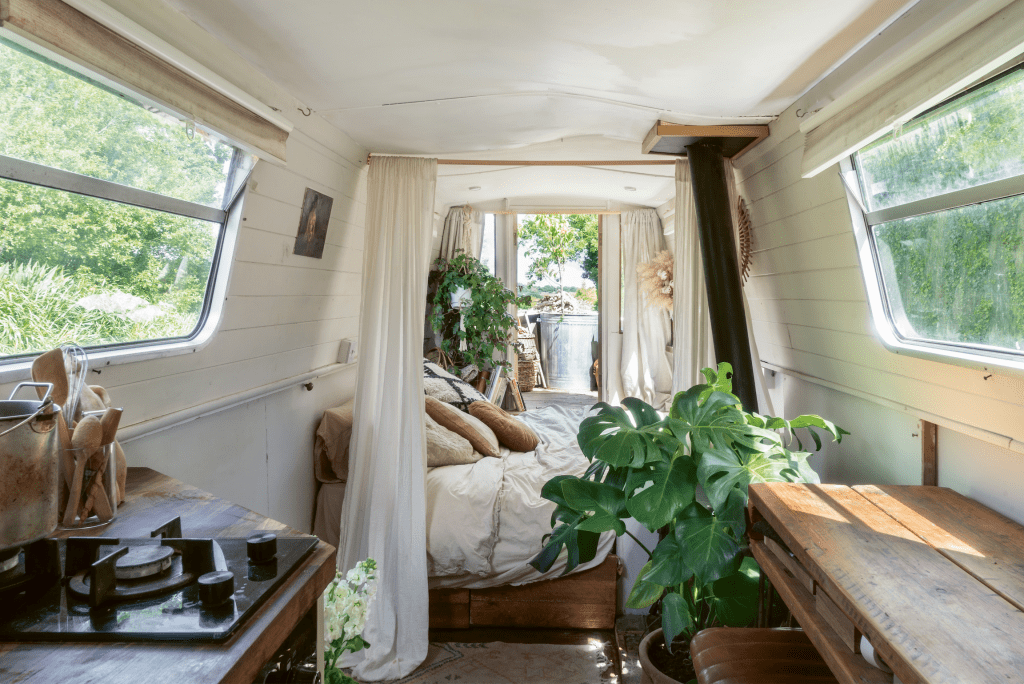
TM: Would you say the people you met tended to be happier with less? Less of the trappings of modern society at least …
OM: Absolutely. They wouldn’t have wanted to be in the book otherwise I don’t think! It was something they were proud of that had worked really well for them. They were content with being comfortable with their own company all the time in big empty spaces. That was very important. You are removing yourself from a lot of those modern trappings. But the advantage, the big draw for so many, was having big beautiful landscapes.
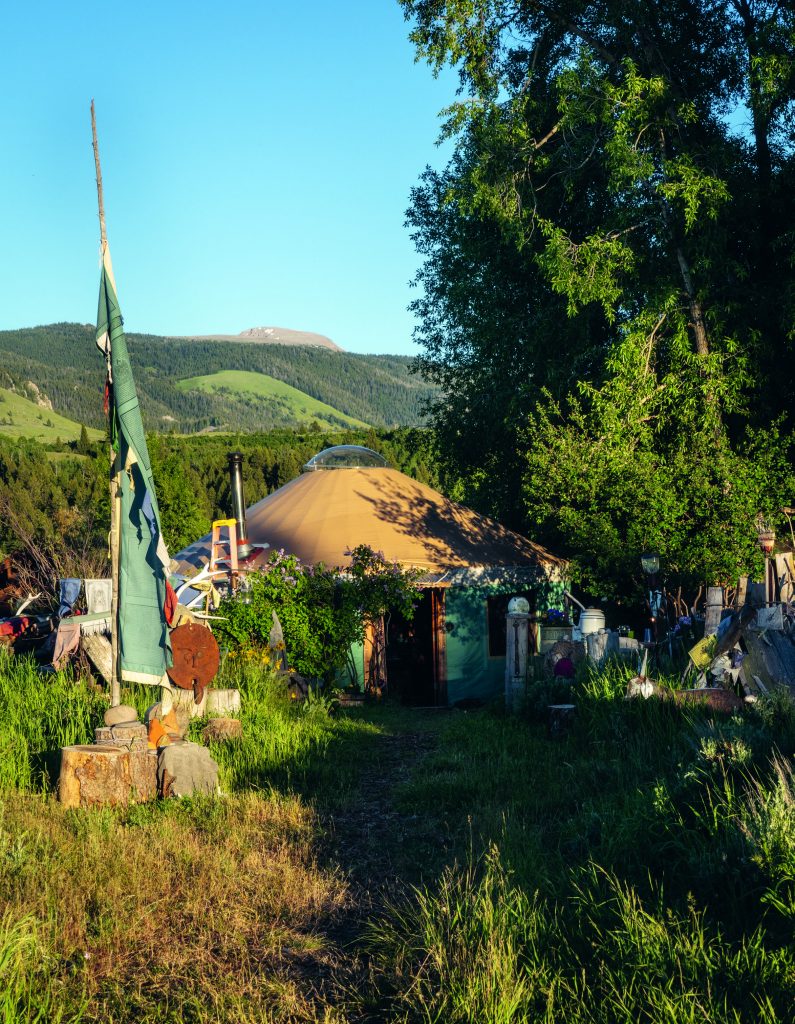
TM: How have your experiences meeting these people changed the way you look at things?
OM: I think thinking more creatively. Certainly it’s been very inspiring how they’ve used their space and done clever things with the design aspect. And just finding that balance between what you really love and how you can make that work for yourself. It’s not going to be easy. Some of them just got a bit lucky along the way, but they kept at it. You make your own luck in some ways. I’ve certainly taken that from it.
TM: We always like to finish by asking for a piece of wisdom. Is there anything you may have gleaned from creating Living Wild?
OM: To paraphrase Layla Robinson in the book who’s discussing her garden: Let it be messy… what we think of as neglect or a lack of order is often where nature – or creativity – can really flourish.
Living Wild: New Beginnings in the Great Outdoors, published by Thames & Hudson is out April 6th.
Click the banner to share on Facebook



